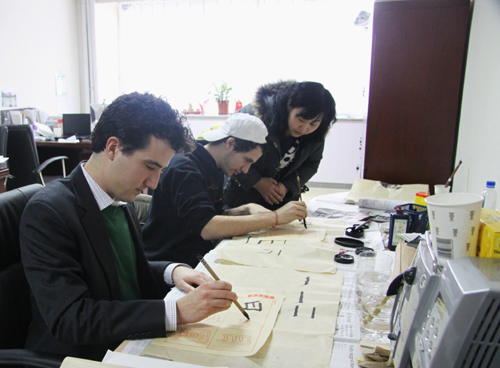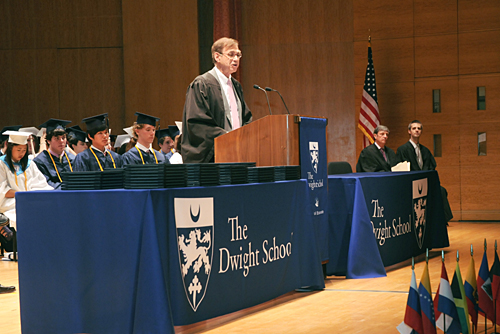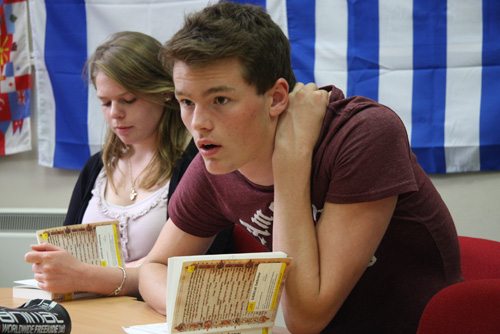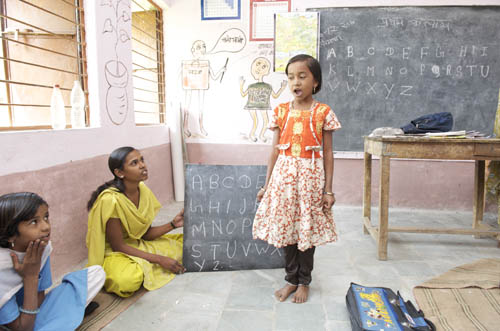
“I don’t speak a foreign language. It’s embarrassing,” said President Obama recently.
It is embarrassing, Sr.. Presidente, but it does not surprise me. You did not grow up like I did. Five different overseas schools and numerous cultures before I was 12, and then an international boarding school. My parents (with six children) were following a pay check and a conviction that world travel would give us a better life and make us global citizens with a richer appreciation of all humanity (my father made us study the language of every country we visited, because not to speak the language of your host country was quite frankly, deseducado!). Así, now you’re wondering, can I produce a copy of my birth certificate? Sí, but while it will tell you that I am a British Citizen born in Georgetown, Guyana, my husband will tell you, “She’s a multi-national with an international rolodex to be envied.”
Some people talk about preparing children for the global world, others just do it, like my parents. And like Stephen Spahn, Chancellor of the Dwight School in New York City, who has established affiliate Dwight campuses in London, Vancouver Island, and Beijing, where Dwight has a joint diploma program with China’s Capital Normal High School (CNHS), a leading provincial high school. As an International Baccalaureate leader, Spahn’s vision is to educate students to make a difference nationally and internationally. Plans are currently underway for a South Korean Dwight school launch in 2012.
“The Chinese government valued Chancellor Spahn’s international mindedness, cultural sensitivity and expertise,” explains Dianne Drew, Principal of Dwight School in New York City and Project Manager of the school in China. “They also wished to improve admissions of Chinese students to American colleges, which the Chinese consider the best universities in the world.”
Mandarin study at Dwight in New York starts as a core subject from pre-school onwards with more intensive classes available from grades eight through 12. Other curriculum offerings include Asian cultural and history studies. Each student who participates in the program in China receives a diploma based on concurrent study of a full Chinese National Curriculum and a U.S. AP curriculum. The Dwight college guidance and admissions team assists Chinese students in their application process to American colleges.
I had the pleasure of speaking further with Chancellor Spahn about his roadmap to develop world leaders.
What is your global vision?
Our global vision, as an International Baccalaureate leader, is to build strong relationships between cultures around the world. We want to educationally integrate our campuses in New York, Londres, Beijing, Vancouver Island, and Seoul in 2012. Our personalized learning approach ignites a spark of genius in every student through a multi-grade mentoring system. We are expanding opportunities for all students and teachers to experience other cultures. Each individual country campus has unique strengths that can be shared with students at the other schools. Por ejemplo, Estudiantes coreanos y Nueva York estarán equipados con la última tecnología digital; el campus en la isla de Vancouver en Canadá es un modelo de sostenibilidad del medio ambiente (un tercio de la facultad son agricultores orgánicos); los programas de arte de Londres y Nueva York que realizan son equivalentes a los programas universitarios de primer año.
¿Cuáles fueron los retos de la fundación de la primera escuela secundaria estadounidense en China?
El primer reto fue construir la confianza entre nuestras escuelas. Cuando comenzamos en 2007, Estudiantes chinos eran casi exclusivamente centrada en el examen. We had to teach them that learning does not end with an AP exam but that it is an ongoing lifelong process. We thought that the Chinese would have a strict censorship policy. Sin embargo, we discovered that all of the literary works we taught in New York were able to be taught in Beijing. We have successfully met the challenge of educating Chinese parents on the full spectrum of American universities available to their children. Sixty students are about to receive both a Dwight and a CNHS Diploma. Nuestra primera graduación se llevará a cabo en junio 10. Todos los que se gradúan los estudiantes chinos han sido admitidos en las principales Universidades de América.
¿Cuáles son sus próximos pasos relativos a China?
Nuestra relación con nuestra escuela en China seguirá fomentando una mentalidad internacional entre nuestros estudiantes y profesores. Durante los últimos tres años, hemos tenido oportunidades de intercambio de profesores, donde hemos compartido mejores prácticas de enseñanza y aprendizaje. Nuestros estudiantes han viajado a Normal Capital, y este verano vamos a enviar seis estudiantes y un profesor a Beijing para una oportunidad de campamento de verano; vivirán con familias CNHS como invitados del gobierno de Beijing. Nuestro programa ha sido una curva de aprendizaje empinada pero enriquecedor para ambas escuelas. Nos estamos moviendo hacia el fortalecimiento aún más nuestros lazos como hacemos una solicitud conjunta para el programa de aula Confucio dirigido por el gobierno chino para promover el estudio de la lengua y culturales. Hemos tenido el orgullo de ser una parte instrumental de la preparación de los estudiantes chinos para los modelos de educación occidentales y para su eventual aceptación en colegios y universidades de América del Norte. Tenemos igualmente que nuestros estudiantes estén abiertos a la exploración de la enseñanza universitaria china y la cultura rica por tener más oportunidades de cambio en Beijing. Reconocemos que la sensibilidad y la experiencia global serán cruciales para el éxito futuro y para los líderes del mundo en desarrollo.

¿Por qué Corea del Sur 2012?
Korea is a significant player in the Asian community from an educational and economic standpoint. Dwight was selected from a review of over 100 leading schools around the world to be the International Baccalaureate model for the Korean educational system. 540 estudiantes, grades K-12, will be enrolled starting September 2012. We will also act as the regional center for all the IB schools in Korea. The Dwight International School Seoul is being built by the Seoul municipal government. With the opening of the new campus in September 2012, la escuela en Seúl ofrecerá programas de capacitación para los docentes del IB y será el centro para compartir IB mejores prácticas con las escuelas coreanas interesadas.
Sabiduría Mundial — Un extracto tomado del discurso de graduación de la canciller chino Spahn:
“La escuela es un lugar que se construye sobre los sueños. Sueños donde se fomenta cada individuo para abrir un camino donde no existía. La escuela es un lugar que nunca se ha quedado atascado en el pasado, pero siempre honra la tradición. Es un lugar que abraza la innovación con todas sus diferentes y difíciles retos. It is a place that honors teamwork and comradeship, but still guides every individual through his or her own unique path. Dare to dream – to have the courage to take risks – to be a person of action – to make service count – to fill every unforgiving minute with 60 seconds worth of distance run – to acknowledge we only have 24 hours in any day and we should use them in ways that make us proud and nurture our spark of genius, to build a better world.”


En La Búsqueda Global para la Educación, unirse C.M. Rubin y reconocidos a nivel mundial los líderes de opinión entre ellos Sir Michael Barber (Reino Unido), DR. Leon Botstein (Estados Unidos), DR. Linda Darling-Hammond (Estados Unidos), DR. Madhav Chavan (India), El profesor Michael Fullan (Canada), El profesor Howard Gardner (Estados Unidos), Profesor Yvonne Hellman (Países Bajos), Profesor Kristin Helstad (Noruega), Profesor Rose Hipkins (Nueva Zelanda), Profesor Cornelia Hoogland (Canada), Señora. Chantal Kaufmann (Bélgica), Profesor Dominique Lafontaine (Bélgica), El profesor Hugh Lauder (Reino Unido), Profesor Ben Levin (Canada), Profesor Barry McGaw (Australia), Sridhar Rajagopalan (India), Sir Ken Robinson (Reino Unido), Profesor Pasi Sahlberg (Finlandia), Andreas Schleicher (PISA, OCDE), DR. David Shaffer (Estados Unidos), Canciller Stephen Spahn (Estados Unidos), Yves Theze (Lycee Francais EE.UU.), Profesor Charles Ungerleider (Canada), Profesor Tony Wagner (Estados Unidos), Profesor Dylan Wiliam (Reino Unido), Profesor Theo Wubbels (Países Bajos), El profesor Michael Young (Reino Unido), y el profesor Zhang Minxuan (De China) a medida que exploran las cuestiones de educación cuadro grande que todas las naciones se enfrentan hoy. La Búsqueda Global para la Educación Comunitaria Página
C. M. Rubin es el autor de dos ampliamente leído serie en línea por la que recibió un 2011 Premio Upton Sinclair, “La Búsqueda Global para la Educación” y “¿Cómo vamos a Leer?” Ella es también el autor de tres libros más vendidos, Incluido The Real Alice in Wonderland.





Comentarios recientes